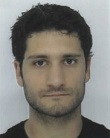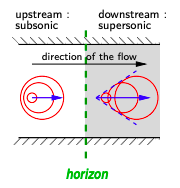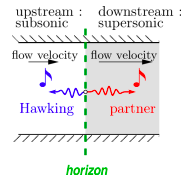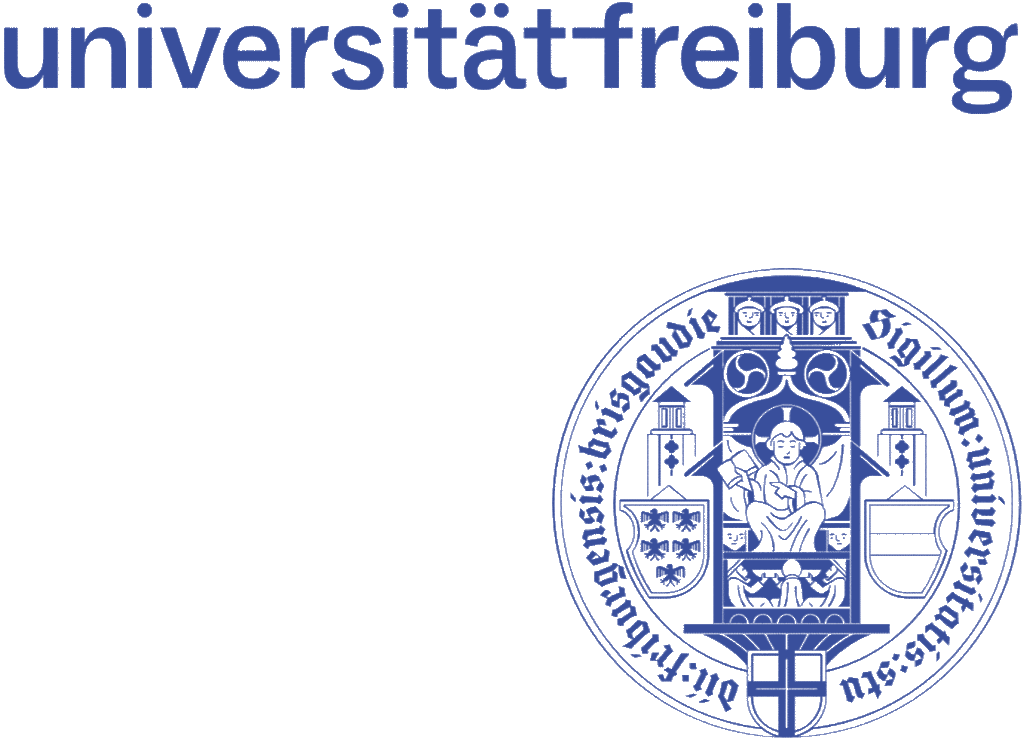
University of Freiburg
Institute of Physics
Quantum Optics and Statistics
Entanglement and quantum information in analogue black holes : analogue Hawking radiation in Bose-Einstein condensates (BECs)


In an acoustic analogue system, as the ones obtained in BECs, a transonic fluid flow (i.e. a flow which is supersonic in a region of space, and subsonic elsewhere) is experimentally realized in order to model a gravitational black hole. Quantum fluctuations of the sound field induce emission of Hawking quanta away from the acoustic horizon. This radiation is correlated to a “partner” which falls inside the analogous black hole. This is why studying this phenomenon in Bose-Einstein condensates allows for a better understanding of multipartite entanglement and information transport. The topic therefore belongs to the very active and stimulating area of research called “quantum simulators”.
The project should mainly focus on the study of the two phenomena of backreaction and information entropy transport. Indeed, the theoretical background set by the Gross-Pitaevskii equation allows for the inquiry in BECs of non-linear quantum effects induced by the emission of analogue Hawking radiation on the transonic configuration of the system itself, that is on the acoustic horizon (backreaction). Furthermore, studying the entanglement between the analogue Hawking radiation and the acoustic black hole in a BEC will allow to address the problem of the restitution, by the acoustic black hole, of the absorbed information through the thermal Hawking radiation (information entropy transport). Such a study can be undertaken by modeling the information dynamics in an open system. Studying analogue systems in BECs thus raises both theoretical and experimental issues for controlled dynamics of atomic systems.
Supervisors:
Andreas Buchleitner (Quantum Optics and Statistics, Freiburg University)
Nicolas Pavloff (LPTMS, Paris-Saclay)



